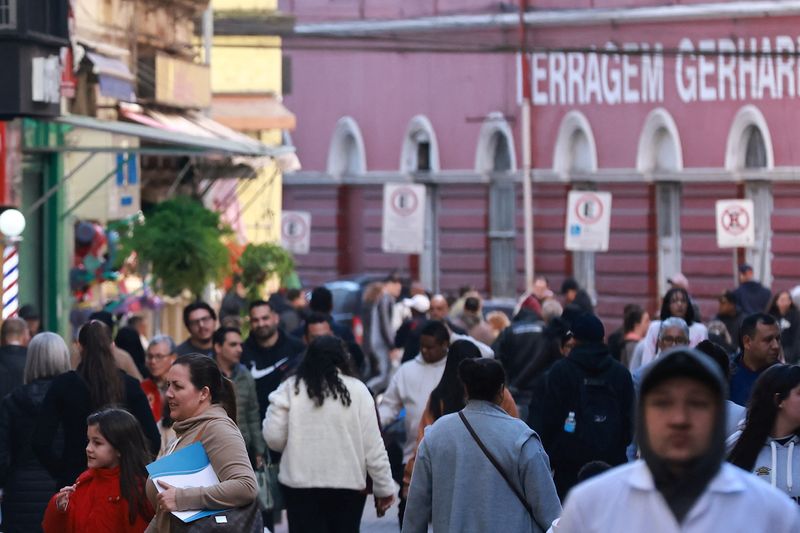BRASILIA (Reuters) -Brazil's government kept its economic growth projection for this year at 2.5%, saying that support measures for families, businesses, and regional governments would offset the negative impacts of unprecedented flooding in its southernmost state.
In a review of macroeconomic indicators released on Thursday, the finance ministry's economic policy secretariat also raised the 2024 inflation estimate to 3.9% from 3.7% in May, moving further from the 3% official target.
The move reflects a weaker Brazilian real, the government said, also citing the impacts of the calamities in the Rio Grande do Sul state on inflation and increased fuel prices.
Economic Policy Secretary Guilherme Mello said that the Brazilian foreign exchange market is open and deep, and therefore has been more affected by external fluctuations. Since the beginning of the year, the real has fallen more than 13% against the U.S. dollar.
Mello assessed that since May, this depreciation has been more intense than that seen by emerging peers, affected by noise that he said should dissipate amid government efforts to reduce uncertainties and reaffirm its fiscal commitment.
For 2025, the government lowered the gross domestic product (GDP) growth projection to 2.6% from 2.8% and increased the expected inflation rate to 3.3% from the previous 3.2%.

The slower economic expansion next year will be influenced by borrowing costs, as the interest rate will be kept steady at 10.5% throughout this year, according to market expectations, the secretariat said.
In June, the central bank paused an easing cycle following seven consecutive cuts in the Selic rate, citing the need for greater caution amid global uncertainties and inflation expectations diverging from targets in Brazil, where economic activity has been showing resilience.